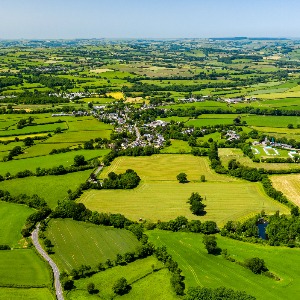Rural connectivity: Is engagement the cornerstone to drive a better future?
Despite the ubiquity of digital technologies in almost every aspect of our lives, access to and the use of such technologies remains unequal and represents a Grand Challenge for our society. This is especially true for UK rural communities who, due to the unequal distribution of market-driven digital infrastructure, suffer from poor connectivity and ‘unfit for purpose’ mobile and broadband infrastructure technologies.
This lack, in turn hampers a community’s capacity to exploit the potential of technology. Yet, it also means that rural areas miss using technology to drive productivity or develop a smarter state to ensure communities flourish – both socially and economically.
Brought into sharp focus by the pandemic, as people became reliant on connectivity to work, socialise and learn, Mobile Access North Yorkshire – part of Department for Digital, Culture, Media and Sport (DCMS) 5G Testbed and Trials programme – has set out to support interventions to drive change.
The complex nature of digital infrastructure
Governments have put in place policies to enable interventions that create digitally connected communities, however, the realities and demands of implementing such initiatives in practice are fraught with difficulties. For example polices are often outpaced by technological development, and the institutionalised organisational practices of Mobile Network Operators (MNOs) and other commercial digital infrastructure can hamper progress. Whilst at the same time, rural communities do not speak with one voice, with some actively resisting changes whilst others welcoming it.
Is there a way of finding a collaboration between all partners to achieve a collective aim: to help rural communities flourish socially and economically?
The Findings
MANY is part of the DCMS 5G Testbed and Trials programme. Working in North Yorkshire – where up to eight five percent of the county is classed as super sparse – connectivity is a real issue for many very rural communities.
Key to the project has been the early engagement with communities in order to develop an understanding of the social and economic impact that improved connectivity has the potential to achieve.
A year on, MANY via its social science researchers, Lancaster University Management School, has published its early findings, which uncovered the following three key research findings:
- Working with the community
- Considerations for joined-up thinking and actions plans for ‘place’
- Running complex projects with multiple stakeholders
Understanding current experiences, future hopes and concerns has driven the project forward. By giving a unique look at how rural areas live and work has enabled the project to explore new opportunities. This means 5G is designed to work for an area, making an economic and social difference to rural residents. Yet it has also generated ideas. These have the potential to be scaled up or adapted for different sectors – accelerating innovation and developing key markets for others, whilst also establishing a potential market of ready to go 5G users.
Next steps
The MANY project recognises that these findings are just one project. It is keen to share insight and hear experiences from others who work on digital infrastructure projects. To this end, the project is holding a discussion event on 15th July between 2pm and 4pm via Teams. Interested? Book here.
About

Based on the social science insight from DCMS 5G Testbed and Trials project Mobile Access North Yorkshire (MANY) undertaken by Lancaster University Management School researchers Professor Katy Mason and Dr Sharon Wagg. This article has been written by Dr Sharon Wagg.
Sharon is a Research Associate at Lancaster University working on the MANY project. Her recently completed PhD explored digital inclusion initiative provision in UK rural communities. Sharon has also worked as a research coordinator at a UK third sector digital inclusion organisation, presented research at national and international conferences, and policy events, and published research in academic journals and books. Mobile Access North Yorkshire is a consortium of Quickline Communications, North Yorkshire County Council, the universities of Lancaster and York, aql ltd, Cybermoor Ltd, Safenetics, Flo-culture and Wireless Coverage.

This article was published by Dr Sharon Wagg on Mobile Access North Yorkshire (MANY) project.
To read more about Mobile Access North Yorkshire, please visit their Twitter and LinkedIN page.

